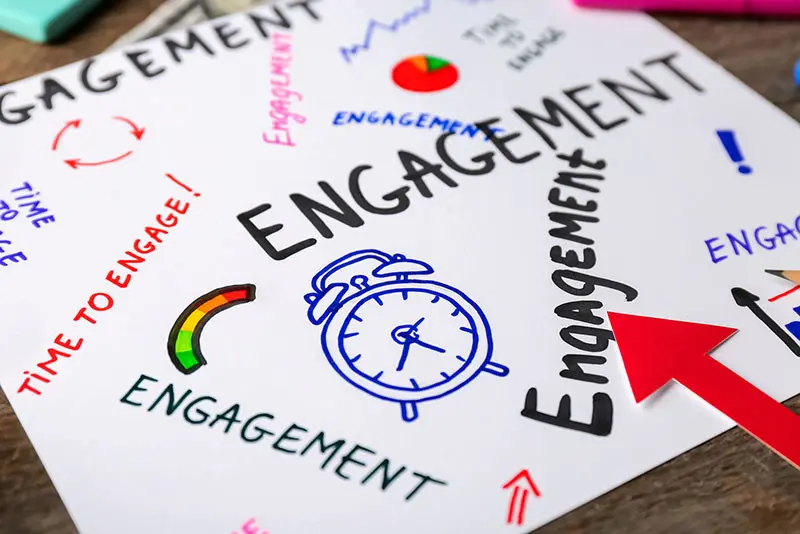Research tells us that we learn and retain information better, and are more motivated, if the learning encounter occurs within a social context.
Also, through physical and mental rehearsal of behaviours in a social learning context, our real world responses are also improved.
This all sounds great, so how can we apply this dry social learning theory to our contemporary learning strategies?
Here’s 3 simple ways to use social learning to engage your learners?
1. Learning through observation
Rather, than tell someone how to respond effectively in a situation, why not show them how other people respond effectively in such a situation?
Let the student learn through social observation.
Want to show learners how to respond to a fire alarm?
Show, (don’t tell), perhaps via a cost-effective pre-existing, YouTube video or a real-life simulation, (if you have the budget), and you’ll get the benefits of enhanced social learning.
The great thing about recorded simulations, (for example, on YouTube), are the rewind and slow-playback features which mean that not only can we observe someone demonstrating a task or skill or behaviour, but we can look at it again and again and simulate it again and again until we get it right.
Video technology enables us to have an enhanced level of physical and mental rehearsal.
Also, if you check the comments sections of YouTube videos in particular you’ll see lots of useful comments from highly informed users, with the most helpful responses conveniently prioritised at the top with the up vote system.
You can directly question these experts within the system and get answers from them or other experts.
You’ll often also find alternative methods and techniques to what is on offer and refinements, along with links to other pertinent videos.
What shouldn’t be underestimated is the slow-playback feature which comes with YouTube (and most video playback systems), which allows users to do a more surgical analysis of intricate physical movements.
This, once again, enables learners to mimic the behaviour more accurately over and over again until the perfection is achieved.
This learning experience can be enhanced with virtual classroom technology as you can incorporate trainer feedback, comments and collaboration.
2. Increasing motivation using games and competitions
Learner disengagement is the enemy of learning.
If your learners aren’t motivated to learn, learning will suffer.
By turning some parts of learning into a social competition you can trigger the competitive instinct and get your students engaged in learning.
By incorporating leader boards which showcase learning prowess and badges and incentives that publicly recognise learning you can create a hunger for learning, incrementally boosting motivation and learner engagement.
3. Discussion as a social learning forum
Discussion is perhaps one of the most powerful forms of social learning and new collaboration technology allows trainers to take this form of social learning to the next level.
With the right learning management or social collaboration technology, users or trainers can share assets/content within a private social network and notify the group that it’s been posted.
Readers can like or join a discussion thread related to that asset.
This means that learners can ask questions about the content or seek clarification in the discussion thread and get answers and new perspectives from the rest of the learners.
Learners can learn from each other.
The applications of this form of social learning are numerous. All your learners need is an eLearning platform to help facilitate it all.
It could be used as a warm up to a classroom or elearning course to build familiarity in advance.
Or it could be used as part of a follow-up course to reinforce learning, answer outstanding questions, and to showcase related topics.
It’s unique strength is that it can be taken straight out of the structured learning environment and used to support self-directed learning.
The best of breed social learning systems will turn the discussion forum into a searchable knowledge base, so learners can find answers to questions arising from day to obstacles in their work.
If you can’t find the answer to your question, most best of breed social learning systems will allow you to directly poll other learners to see if they can answer your questions.
Failing this, learners can go off-site to forums like Quora to find elusive answers to their question (or poll users) from the wider global community.
As an eLearning company, Skillshub is committed to creating efficient and impactful learning experiences. Contact us to find out more.














